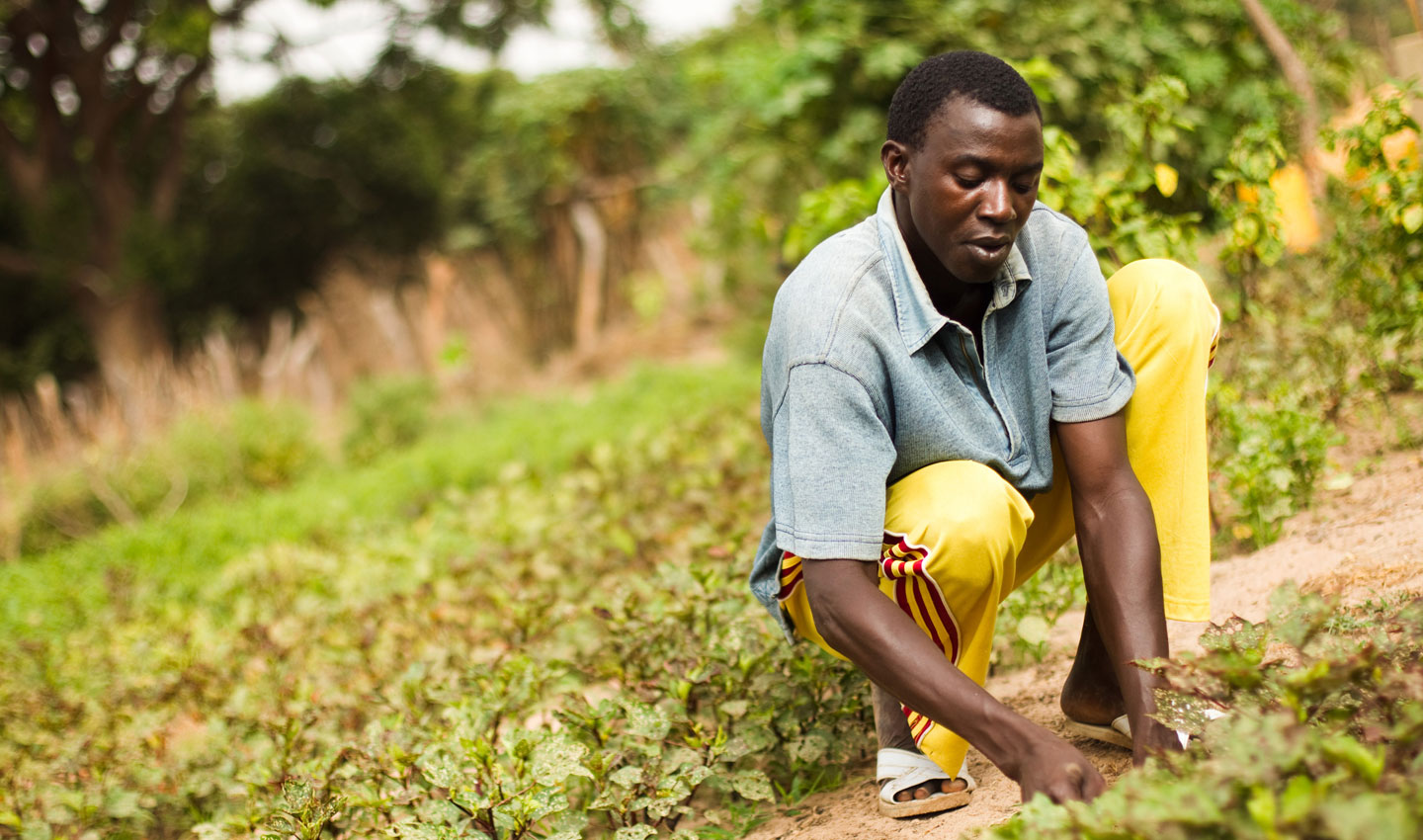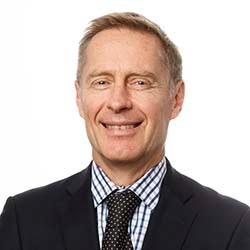Strengthening the resilience of small-scale farmers is critical to reversing the rise in hunger and end poverty
IFAD Asset Request Portlet
Asset Publisher
Strengthening the resilience of small-scale farmers is critical to reversing the rise in hunger and ending poverty
UN International Day for the Eradication of Poverty
By Donal Brown

Today, on the UN International Day for the Eradication of Poverty, I wanted to step back and reflect on the progress we have made collectively and through IFAD's work and also look at the challenges we are facing to further reduce poverty.
Poverty, as we know, has many dimensions: it is not only about low incomes and a lack of resources, but about hunger and malnutrition; limited access to education and basic services; social exclusion and vulnerability.
In 2015, the year we adopted the SDGs, about 736 million people still lived on less than US$1.90 a day, many lacking food, clean drinking water and sanitation. Many countries have significantly reduced monetary poverty since then, but the fact that this has not been accompanied by a reduction in multidimensional poverty reveals a complex story. After a prolonged decline, the number of undernourished people in the world has been on the rise since 2015, and is back to levels seen ten years ago. The estimated number of undernourished people is currently at 821 million, compared to 777 million in 2015. Sadly, this means that we are not on track to achieve either SDG1’s target of less than three per cent of the world living in extreme poverty (and many of these are in rural areas) nor SDG2’s target to end hunger. Both these targets are central to IFAD's mission.
South Asia and sub-Saharan Africa account for 80 per cent of those living in extreme poverty. In addition to this, the poverty rate in rural areas is 17.2 per cent—more than three times higher than in urban areas. As time goes by, these areas are facing new threats brought on by climate change, conflict and food insecurity, meaning that even more work will be needed to help bring people out of poverty.
Strengthening the resilience and adaptive capacity of small-scale farmers is critical to reversing the rise in hunger and ending poverty. IFAD's targeted investments and expertise can and do help deliver inclusive and sustainable rural transformation. However, the trends we are observing mean that business as usual is not enough if we want to get back on track to reach SDG1 and SDG2. We, here in IFAD, need to first, continue and step up our efforts, including with more resources, to end rural poverty and hunger across all countries to ensure that no one is left behind. Second, we need to complement our projects with other actions, such working more with the private sector and targeted grant-based funding and considering alternative delivery mechanisms in countries where rural poverty and food insecurity are chronic. Third, the need to direct all of our efforts to facilitate the development of sustainable, nutritious and inclusive food systems.
This a challenge we cannot take on alone. Partnerships are key - with governments, member states, other IFIs and donors, other UN agencies, as well as non-state organisations, the private sector and, most importantly, our own beneficiaries. It is time to be creative in how we leverage our experience to boost our interventions and achieve sustainable and multidimensional poverty reduction.
We all care about our mission and on a day like today it is important to step back and recognise the progress, but also remember the enormous challenges, which is why IFAD needs to keep challenging itself to step up and do more and differently. In 2019 it is unacceptable to have a world where hunger is getting worse and poverty is still an enormous issue. We only have 10 years to reach the SDGs.
Publication date: 17 October 2019